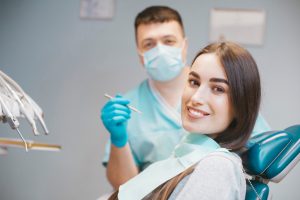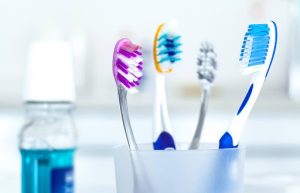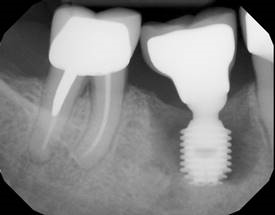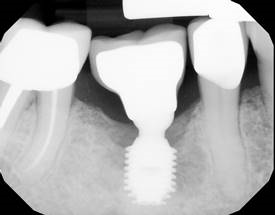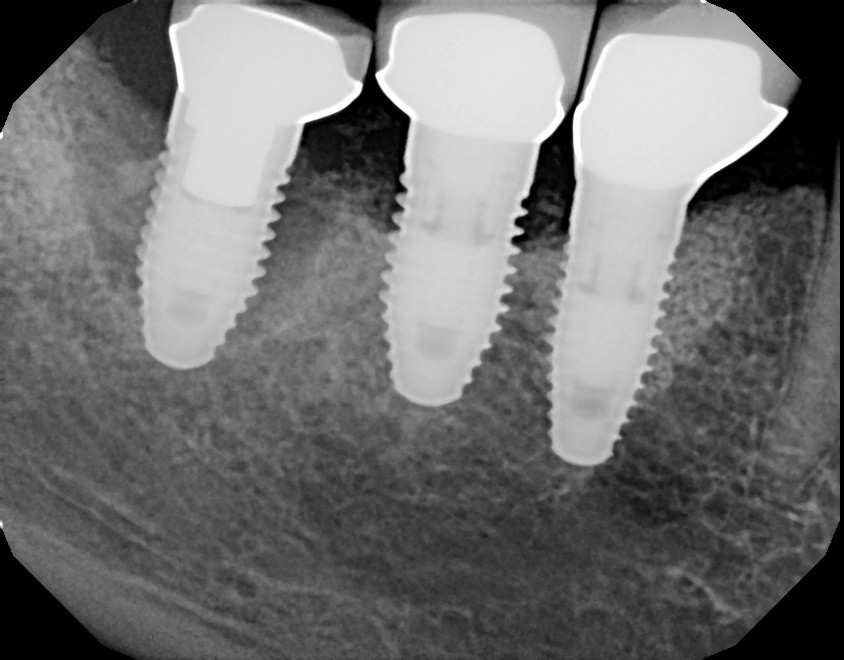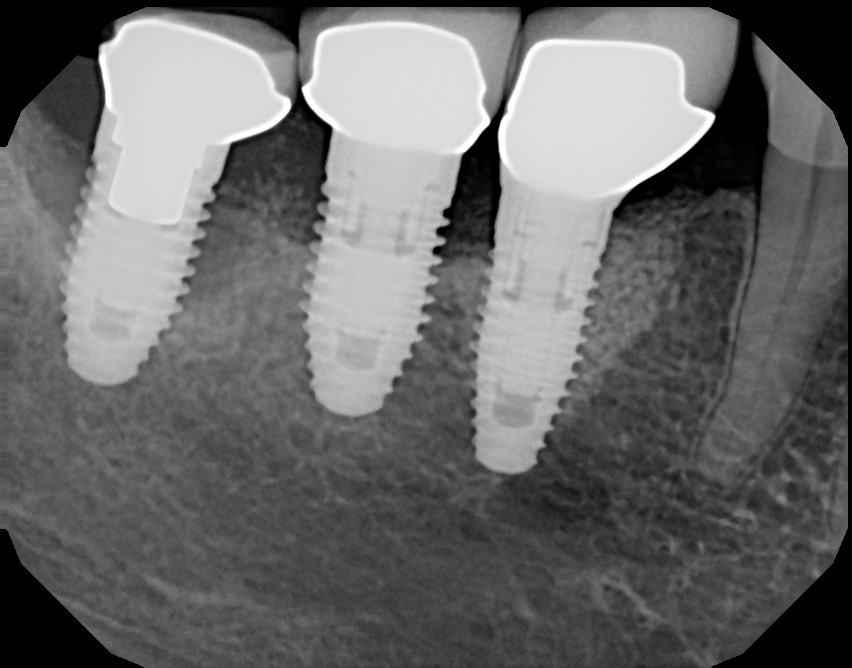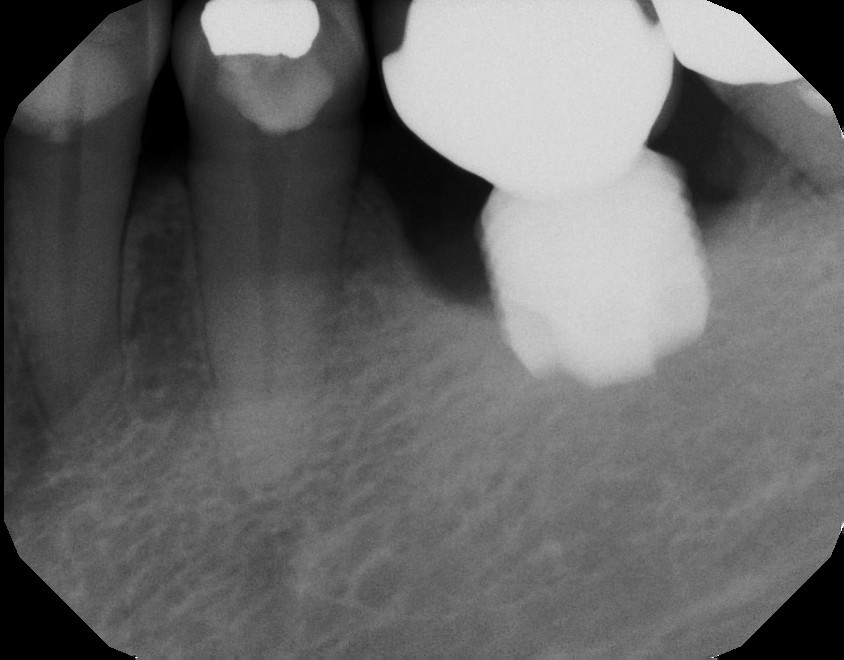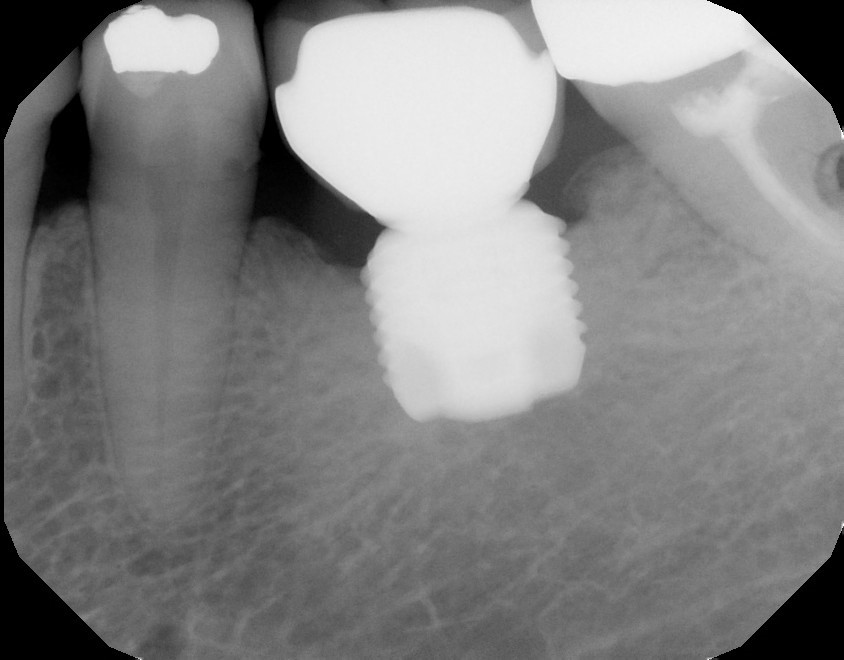Is Peri-Implantitis Threatening Your Dental Implants? Restore Your Smile with LAPIP™ in Hauppauge and Medford, NY
Peri-implantitis can be a devastating setback for dental implant patients, but there’s an advanced solution available. At Farber Center for Periodontics & Dental Implants, with locations in Hauppauge and Medford, NY, Dr. Alan Farber and his team offer LAPIP™ (Laser-Assisted Peri-Implantitis Protocol). This state-of-the-art treatment helps patients at our Long Island, NY, dental practice overcome peri-implantitis and save their dental implants.
Continue reading to discover more about this innovative approach to treating failing implants. To schedule your LAPIP consultation with one of our Long Island, NY, periodontists, call our Hauppauge office at 631-265-4442 or our Medford office at 631-758-3700.
Understanding Peri-Implantitis
Peri-implantitis is an inflammatory condition similar to periodontal disease, but affecting the gum tissues as well as any surrounding dental implants. Caused by bacterial colonization, it can lead to infection, tissue damage, bone loss, and potential implant failure if not addressed promptly.
This complication can be severe, potentially necessitating implant removal followed by extensive bone grafting and implant replacement procedures.
Risk Factors for Peri-Implantitis
Several factors can increase the likelihood of developing peri-implantitis, including:
- Inadequate Oral Hygiene: Just like natural teeth, dental implants require excellent oral hygiene to prevent plaque buildup and infection. Brushing and flossing regularly are crucial to removing bacteria and food particles around the implant and maintaining healthy soft tissue.
- Tobacco Use: Smoking and smokeless tobacco weaken the immune system and hinder healing, making you more susceptible to peri-implantitis. These products also irritate gum tissue and contribute to inflammation.
- Certain Medical Conditions: Unmanaged diabetes, osteoporosis, and autoimmune diseases can all increase your risk of developing peri-implantitis. These conditions can affect the body’s ability to fight infection and promote healing.
- Genetic Predisposition: Some studies suggest a potential genetic link to peri-implantitis. If you have a family history of periodontal disease, you may be at a slightly higher risk.
- Implant Design and Surface Characteristics: The design and surface characteristics of the dental implant itself can also play a role. Certain dental implant surfaces may be more prone to bacterial adhesion, while some implant designs may make it more challenging to maintain proper oral hygiene around the implant.
Introducing LAPIP: A Breakthrough in Dental Implant Care
LAPIP, or Laser-Assisted Peri-Implantitis Protocol, is an advanced laser gum surgery treatment offered by Dr. Farber and his associates, Dr. Vasiliki Batalias and Dr. Chris Chondrogiannis, at the Farber Center for Periodontics & Dental Implants. This minimally invasive procedure uses cutting-edge laser technology to eliminate diseased tissue, decontaminate the dental implant surface, and promote healing.
Why Choose Farber Center For LAPIP Treatment?
When facing the challenges of peri-implantitis, expertise is crucial. At the Farber Center for Periodontics & Dental Implants, you’ll find a team of specialists led by Dr. Alan Farber, a renowned periodontist with decades of experience in implant dentistry and treating implant-related complications.
Dr. Farber, along with Dr. Batalias and Dr. Chondrogiannis, utilizes advanced PerioLase® technology to perform LAPIP, offering patients a minimally invasive and highly effective solution for implant-related gum disease and inflammation.
Unlike general dentists, who may lack specialized training in implant dentistry, the team at Farber Center brings extensive experience and a commitment to advancing the field, ensuring patients receive the most comprehensive and advanced care available for their failing implants or peri-implantitis.
Benefits of Choosing LAPIP
- Minimally Invasive Approach: LAPIP utilizes lasers for more precise treatment, minimizing the need for large cuts and sutures. This translates to quicker recovery times and less discomfort overall.
- Preservation of Healthy Tissue: Unlike traditional gum surgery, LAPIP prioritizes leaving healthy tissue intact. This reduces pain and helps maintain the natural contours of your gums for a more aesthetically pleasing result and potentially reduces the risk of future complications.
- Reduced Post-Treatment Discomfort: Since LAPIP is minimally invasive, it typically results in less pain and swelling compared to traditional surgical methods. This allows for a smoother recovery process with less downtime.
- Accelerated Healing Process: The minimally invasive nature of LAPIP, combined with its ability to promote tissue regeneration, translates to a faster healing time. This allows you to get back to your normal activities sooner.
- Effective Bacterial Elimination: LAPIP utilizes a specific laser wavelength that targets and eliminates the harmful bacteria responsible for the infection around your implant. This targeted approach ensures a more effective treatment.
- Enhanced Implant Stability: By removing infected tissue and promoting healing, LAPIP helps strengthen the bond between your dental implant and jawbone. This leads to a more stable and long-lasting implant.
- Improved Aesthetic Outcomes: By preserving healthy gum tissue and promoting regeneration, LAPIP helps maintain the natural appearance of your gums around the implant. This results in a more aesthetically pleasing smile.
- Potential for Bone Regeneration: LAPIP’s laser technology may stimulate the growth of new bone tissue around the implant. This can be especially beneficial in cases where bone loss has already occurred due to peri-implantitis.
- Predictable Results: Clinical studies have shown LAPIP to offer a high success rate in saving failing dental implants. This provides peace of mind, knowing the procedure has a good chance of restoring your implant’s health.
- Lower Risk of Complications: The minimally invasive nature of LAPIP reduces the risk of complications associated with traditional gum surgery, such as infection and bleeding.
Candidates for LAPIP Treatment
You may be a suitable candidate for LAPIP if you:
- Have been diagnosed with peri-implantitis
- Still have adequate bone tissue support around the affected implant
- Are committed to maintaining good oral hygiene
- Are in good overall health or have well-managed systemic conditions
- Don’t smoke or are willing to quit
- Are motivated to save your dental implants
The LAPIP Treatment Process
Initial Consultation
Your journey begins with a thorough consultation with one of our Long Island periodontists. They will assess your oral health, review your medical history, and discuss your concerns and treatment goals. The LAPIP procedure will be explained in detail, addressing any questions you may have.
Pre-Treatment Preparation
Before the LAPIP procedure, you may undergo professional cleaning to remove surface deposits around the affected implant. Our Hauppauge or Medford periodontist will provide pre-operative instructions, which may include taking antibiotics or using antimicrobial rinses.
LAPIP Procedure
During the LAPIP treatment, our periodontist will use a specialized laser to remove infected tissue and decontaminate the implant surface. The laser therapy procedure is typically performed under local anesthesia for your comfort.
Aftercare for LAPIP Treatment
Proper aftercare is crucial for the success of your LAPIP treatment. The team at the Farber Center recommends:
- Following post-operative instructions carefully
- Avoiding smoking and hard foods during initial healing
- Maintaining excellent oral hygiene
- Attending follow-up appointments
- Continuing regular dental check-ups and cleanings
- Reporting any concerns promptly
- Committing to long-term oral health maintenance
Frequently Asked Questions
Is LAPIP painful?
LAPIP is performed under local anesthesia, ensuring your comfort. Some minor discomfort or swelling may occur post-treatment but it’s generally well-tolerated.
How long does LAPIP take?
The duration of laser surgery varies depending on the number of implants treated and the extent of peri-implantitis. Typically, it’s completed in a single visit lasting 30 minutes to an hour.
What is the success rate of LAPIP?
LAPIP has shown promising results in treating peri-implantitis and preserving dental implants. With proper aftercare, the success rate is high, often allowing patients to avoid implant removal and replacement.
Is LAPIP covered by insurance?
Coverage for LAPIP can vary. It’s best to check with your insurance provider directly or consult with our office staff for assistance in determining your coverage.
Call Now & Save Your Implants with LAPIP on Long Island
If you’re experiencing issues with your dental implants in Hauppauge, Medford, or anywhere on Long Island, NY, don’t wait to seek help. Contact Farber Center for Periodontics & Dental Implants to explore the benefits of LAPIP treatment.
Call our Hauppauge office at 631-265-4442 or our Medford office at 631-758-3700 to schedule your consultation. Let our team help you reclaim your smile and preserve your dental implants with this innovative, patient-centered approach. We also serve surrounding communities in Long Island, such as Patchogue, Holtsville, and Middle Island. Take the first step towards implant health today!
Laser-Assisted for Perio Implantitis (LAPIP) Saves Failing Implants
LAPIP Case 1
Before LAPIP 93 yr old female patient
After: One year post op LAPIP 93 yr old female patient
LAPIP Case 2
Before
After
LAPIP Case 3
Before
After



